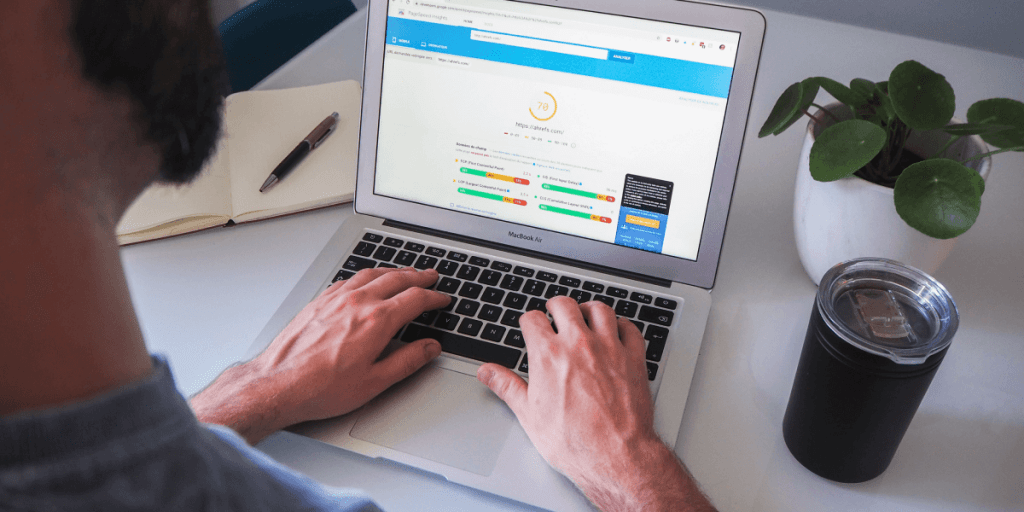The Importance of Ongoing SEO Maintenance. What You Should Know and How To Keep Up With Changes?
We spend a tremendous amount of time on the internet nowadays as it has become a big part of our lives. Either we use it for work, learning, playing, reconnecting with friends or just relaxing. We consume content daily. We use major search engines such as Google and Bing to find what we are looking for. Therefore, optimizing your website is crucial for your business success. Your digital marketing and search engine optimization (SEO) strategies need to be carefully planned to keep up with online changes to reach new customers. SEO is not a one-time effort. It requires continuous attention to be a powerful and competent tool for your business.
In this article, we will talk about the importance of ongoing SEO, why you should choose it instead of one-time SEO, and how to keep up with the changes. Follow along for valuable information that can change the way you think about search engine optimization.
What Is Search Engine Optimization (SEO)?

Search engine optimization (SEO) is the process of organizing your website’s content by category, improving the quality of your content, and working on bettering your site with the purpose of attracting new and relevant traffic, offering a smooth user experience and increasing your revenue.
Having an SEO strategy in place is necessary because it will help you stay relevant while creating quality content. Instead of putting information on your website about what you think your target audience is looking for, you will have a content strategy that will guarantee that you give the information people are searching for.
An SEO strategy is critical for content marketing because it dictates how your content will be displayed on the search engine results page (SERP). When you don’t know how to organize your content, and it is scattered all over the place, it will be more difficult for search engine bots to index your website, identify the area of your website authority, and rank your website pages.
It is essential to point out that mobile SEO is imperative while creating your SEO strategies. Mobile search engine optimization activities ensure your website and content are available and can be accessed by mobile users, creating the same user experience as desktop users have. Mobile optimization is a must-do action as Google has a mobile-first indexing approach. This means that your mobile version is indexed and is ranking on the SERP. The good news is that if you have a great mobile website that ranks high, your desktop website will also have a good rank.
Also, we would like to underline that the mobile SEO process considers some distinct factors such as improving page speed, making sure you have a responsive website, implementing local SEO strategies, creating quality content for SEO regardless of the device your target audience is using.
The nature of SEO is complex. The three elements of SEO that you should always pay attention to are on-page SEO that focuses on the content optimization that is on your website page to increase the search rankings for specific keywords, such as meta tags, meta descriptions, fresh content, etc.; off-page SEO is focusing on link building (links that direct to your website from other sites on the internet). The number of backlinks a site has from trustworthy sources helps your website increase the trust with the search algorithms; the last component is technical SEO that focuses on your website’s backend architecture (website’s code). Keep in mind that Google considers the technical aspect of your site as much as it does content.
As a business owner, you should understand that every business niche is different. It has distinct needs, goals and business objectives. Therefore, it is crucial to have an SEO agency that can identify your audience’s interest and put in place a strategy based on user search intent and audience preferences.
Why Is SEO an Ongoing Process?

Ongoing search engine optimization requires continuous attention. It is not a one-time event. Based on the following statistics by Search Engine Journal, 70 to 80% of users ignore paid ads and focus on the organic results, 75% of users never access the second page of the search results, and SEO leads have an almost 15% close rate. In comparison, the leads that came from email or print have a nearly 2% close rate.
SEO is an ongoing process because of the changes in the market, the continuous rise of the competition and the constant evolution of search engine algorithms. Let’s talk about them:
- Market Changes – new products, movies, fake news, trending hashtags, etc., are being released on the market every day. We didn’t have them a decade ago, and nobody searched for them then. Now, they do, and people are searching for specifics. As language evolves, the market wants to keep up and evolve as well. Ongoing SEO is needed because we can not always anticipate what will come on the market next and be the new fad. If your target audience consists mainly of Millennials and Gen Z, the type of content on your website should keep up with the market demands and reflect the language being used by your customers, potential customers and peers.
- Competitors – as the markets change quickly, the competitors change as fast. When you publish a new piece of content, the possibility of facing a new competitor is most likely. The competition will not always be on the products or services. Business goals do change, and some of your competitors might decide to pay more attention to SEO and step up their game, outrank you, and find new keyword opportunities. Because the competitive markets are changing daily, SEO is an ongoing process.
- Search Engine Algorithms – because the way people search online changes, search engines change their algorithm constantly. Google is updating its core algorithm at least three times a year. The search engine wants to prevent websites that use black hat SEO techniques such as keyword stuffing, cloaking, sneaky redirects, etc., to fool the search engine crawlers. Its interest is to help users find the most relevant search results for their search query. More than that, Google uses more than 200 ranking signals when deciding how to rank your website. Here is the reason why a continuous SEO process is needed. Ranking signals and ranking algorithms change fast. Search engines do frequent updates to the way the websites are displayed on the SERP. What works for you today might not work tomorrow.
The Importance of Ongoing Search Engine Optimization

For many businesses, the majority of the organic traffic to their website comes as a result of their SEO efforts. We strongly recommend making SEO a priority when you promote your business online. Many businesses are going to implement an SEO jumpstart strategy with the hope of showing up on the first page of the search results page. But this is not how you achieve a great search ranking. When you launch a website and optimize it in every aspect, you cannot expect to be on top of the SERP. You can build a great website and have a rock-solid SEO strategy, but you need to constantly work on it and advertise it to reach a high level of success. Alongside ongoing SEO tactics, a digital marketing strategy including PPC, email marketing and social media marketing will allow you to increase your website’s traffic, sales, brand awareness and organic traffic.
Our advice is to be consistent while working on your SEO efforts and choose quality over quantity. Even if you create an eye-candy website and optimize your content based on keyword lists that you consider relevant, add plenty of links to other websites, it will not help your business. More than that, it can actually hurt your business. When you associate with unreliable websites, it will make your website seem less trustworthy, and you will be moved down in the search rankings. Also, if you create and publish irrelevant, outdated, offensive or not engaging content, search engines will move you down in the rankings. If you abuse targeted keywords or try to use black hat SEO techniques, the search bots will find them while crawling your website, and you will be penalised.
You can use the techniques we talked about (not the black hat SEO tactics), but it is crucial not to misuse them. Ongoing SEO needs backlinks, fresh content optimized with target keywords, long-tail keywords, etc. But the way you do it is what matters. We strongly recommend you include high-quality links to trustworthy websites in your content, make sure the content on your site’s page matches the page’s purpose. Your keyword lists should be based on keyword research that matches your industry, products and services. Don’t take a competitive keyword and include it in your content with the hope of ranking higher in the SERP. It won’t work.
Ongoing SEO is important because it will help you increase your organic traffic. Your visitors will become more engaged when your content is relevant and up-to-date. The traffic will become more relevant as it is a match for the users’ search. All of these aspects will increase brand awareness, create customer loyalty, increase your revenue, become a trusted source in Google’s eyes, and end up rising in the rankings.
Our Advice – How To Keep Up With SEO Changes?

Understanding that SEO is an ongoing process will help you stay on top of your competition and keep your customers happy. But, you must know that the online environment changes and algorithm updates are frequent. These two factors change the SEO rules.
We want to give you some advice on how to keep up with SEO changes and be prepared for whatever is going to come next:
- First of all, you should stay informed on SEO trends. This means that you should know what is happening in the search engine’s algorithm environment. As people change the way they search online, search engines are encompassing the new user demands. Your SEO team is probably studying regularly if they are missing out on trends, core algorithm updates, and events that can affect your rankings.
- Monitor and evaluate your SEO on a regular basis. The good part is that you can check the progress of your SEO campaigns by gathering information from Google Analytics, Google Search Console or any analytics platform you use for your monitoring process.
- Freshen up your content. Once every 12 months to 18 months, we strongly advise you to look at your overall website content. Many business owners do not understand the importance of rewriting the website content, but keeping your site up-to-date is crucial for SEO purposes. More than that, when you add new products or services, you switch vendors, you want to add other items or improve your customer service, you want your target audience to know. As your business is growing, your website is growing as well, and your content is changing.
- Create a blog and post regularly. SEO-friendly content will help you attract relevant traffic and customers. You will rank well in SERP and your visitors will be more engaged. We recommend you create blog posts related to your industry, products and services, company, news about your business, etc. Research and see what your audience enjoys and offer them exactly what they want. Make sure your blog and articles are SEO optimized, and you create them around specific keywords. If you don’t know where to start, you can read our practical guide on how to write articles for SEO.
- Be involved in your social media. You should know that not all social media platforms are beneficial for your business. Monitor where your target audience is more present and create a profile on those platforms. Social media doesn’t directly impact SEO but is a great way to generate qualified traffic to your website. Having relevant visitors on your website will get lower bounce rates, increase time on site, etc. These will send positive signals to search engines, and they will reward you with trust and a better ranking.
- Monitor your competition. The goal of SEO is to be the top-ranking website. We recommend taking a look at your competitor’s websites, online and social media presence. See what they do right, what their audience enjoys, on which keywords they focus their content, what keywords they use for page optimization, etc. Learn from their high points and mistakes, but do not copy their website, content or visuals.
- Have patience. SEO will not show results in one day or one week. It takes from a minimum of six months to a year to see purposeful results. There are billions of websites and site pages to be crawled and indexed. So, do not expect to get an outcome right away after publishing your optimized content.
We strongly recommend you to take care of all elements of SEO (on-page, off-page, and technical). Suppose you are not convinced that ongoing SEO is a highly beneficial tool for your business. In that case, you can check out our own example of the implementations we did for our Flowmatters website and the outstanding results that we got.

If you don’t know where to start or you don’t have a team that can help you grow your business with intelligent, rock-solid and customized digital marketing and SEO campaigns, you can contact us today! Take a look at our case studies to understand better how we help our partners reach their business goals. Furthermore, you can check out our reviews to have a complete image of our work and ethics.
Frequently Asked Questions
Because SEO is the number one factor that affects your website’s search visibility.
Ongoing SEO will keep you relevant on the search engines results page.
The online environment, the search engine algorithm, the way people search online change almost every day. Ongoing SEO will make sure you keep up with the changes, the new rules and remain relevant for search queries.
If you have the proper knowledge and keep up with the changes, you can implement some SEO efforts yourself. If you are not sure that you can take care of every SEO aspect, we strongly encourage you to look for an SEO partner or contact us.